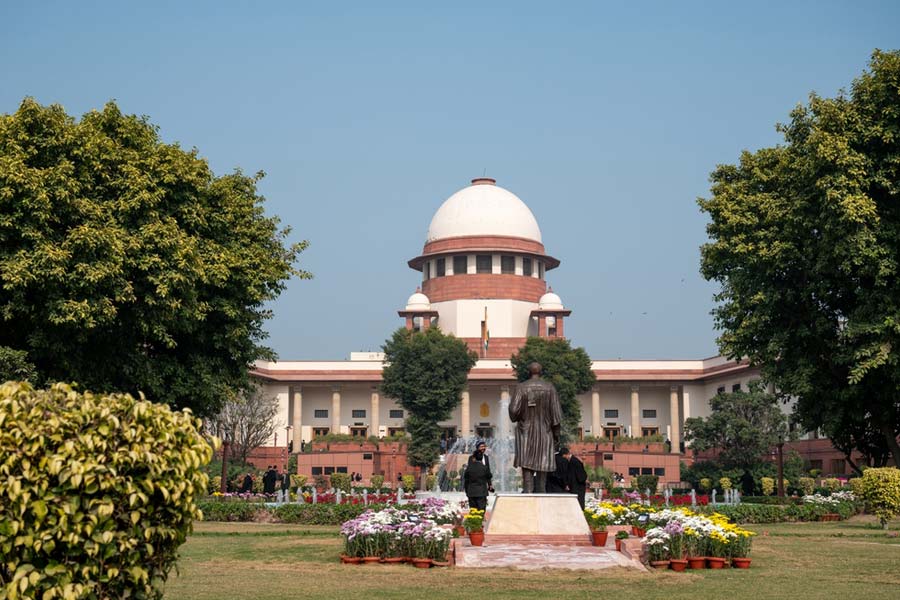The Supreme Court on Tuesday issued notices to the Centre and the states seeking their response on the questions raised by President Droupadi Murmu on its April 8 verdict fixing timelines for governors and the President to act on bills passed by the Assemblies.
Murmu has exercised her power under Article 143 of the Constitution, which enables the President to seek the Supreme Court’s opinion on matters of law that are of public importance.
A five-judge constitution bench of Chief Justice of India B.R. Gavai and Justices Surya Kant, Vikram Nath, P.S. Narasimha and A.S. Chandurkar sought the replies on the presidential reference within a week and tentatively posted the matter for further hearing to next Tuesday.
The bench requested attorney-general R. Venkataramani to assist the court in the matter while solicitor-general Tushar Mehta said he would be representing the Centre.
Former attorney-general K.K. Venugopal, appearing for the Kerala government, said the state was opposed to the reference and would challenge its maintainability. Advocate P. Wilson, representing the Tamil Nadu government, submitted that the reference need not be answered by the Supreme Court, which had already taken a decision on the issue.
The presidential reference follows the apex court’s April 8 verdict that said neither the President nor the governor had any “pocket veto power” to indefinitely withhold bills passed by a state legislature, as it prescribed timelines of three months and one month, respectively, for the two constitutional authorities to approve the bills.
Failure to adhere to the prescribed timelines would give the aggrieved state the right to either move the high court or the Supreme Court, a bench of Justices J.B. Pardiwala and R. Mahadevan had said. The court had also ordered “deemed” assent to 10 bills passed by the Tamil Nadu Assembly with effect from November 18, 2023, when they had been presented to governor R.N. Ravi a second time after heeding his initial call for reconsideration.
Murmu had asked about the constitutional options available to a governor when a bill is presented to him under Article 200 of the Constitution and whether he is bound by the aid and advice of the council of ministers.
“Is the exercise of constitutional discretion by the governor under Article 200 of the Constitution justiciable?” she asked.
The President also wanted to know if timelines can be imposed on the governor and the manner of exercise be prescribed through judicial orders under Article 200.
“Is the exercise of constitutional discretion by the President under Article 201 of the Constitution?” she asked.










